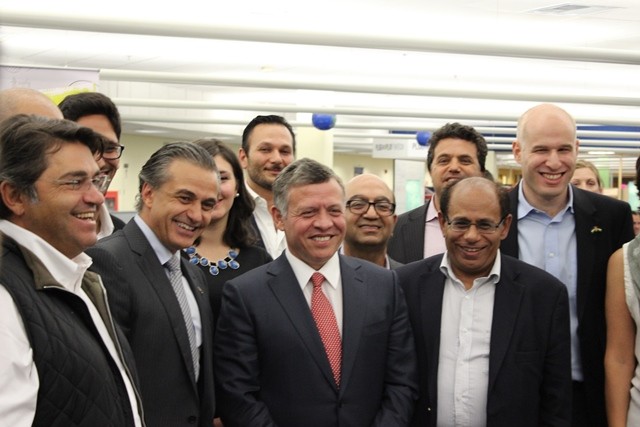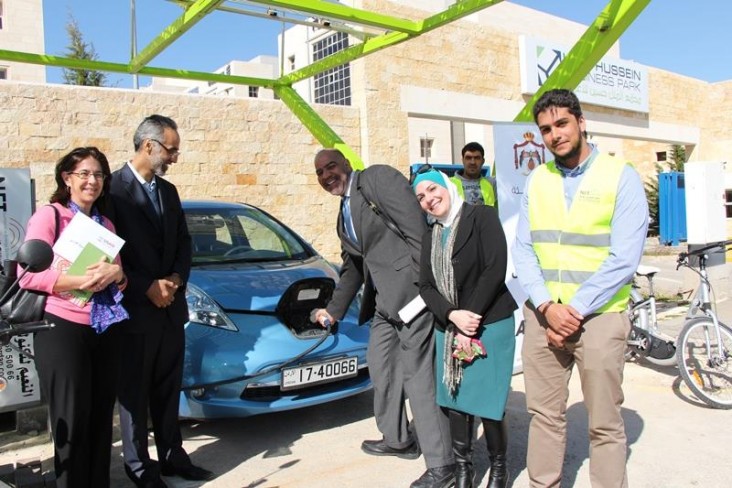Background

The USAID Jordan Competitiveness Program (USAID JCP) is designed to advance competitiveness in select knowledge economy sectors and, in doing so, generate employment, foreign direct investment and exports. Learning from the successes of past programs and their limitations, USAID JCP is taking a more focused approach across fewer sectors to create a real competitive advantage for Jordan. With its comprehensive sector development strategies, the Program anticipates achieving three goals: 40,000 new jobs, $700 million in foreign direct investment, and a 25 percent average increase in exports in targeted sectors.
Project overview
As a result of comprehensive diagnostic analyses, a development strategy was created that focused on three opportunity sectors: Information and Communications Technology (ICT), Clean Technology (CT) and Healthcare and Life Sciences (HLS).
While each of these sectors has its own challenges and complications, JCP’s experience demonstrates that sector competitiveness can be increased through an integrated approach that leverages four program approaches:
Supportive Enabling Environment: pursue policy and regulatory reform that will enable the private sector to be more competitive and innovative;
- Workforce Development: improve workforce readiness in targeted clusters through an approach that strengthens Career Development Centers, establishes Centers of Excellence, and creates internships and training programs;
- Access to Finance: increase access to finance by creating awareness, developing programs to build capacity of firms to offer and access financing, and supporting the development of innovative public private partnerships (PPPs) to create new sources of financing;
- Research & Development (R&D): increase the efficacy of the process from R&D through commercialization to capture innovation.
Key Activities & ACCOMPLISHMENTS
Transformative Clean Technology pilot projects boost to sector development and will unlock hurdles facing the private sector – USAID JCP has formalized strategic partnerships that will showcase key program objectives, and contribute to pushing reforms for an improved enabling environment that will create up to 1,300 new jobs in the Clean Technology sector. Specific projects include: a Solar Enabled Smart Campus at King Hussein Business Park, an Integrated Clean Energy and Solid Waste Management Solution in the Dead Sea Development Zone, Irbid Clean Energy Pilot with an Industrial Focus at El Hassan Industrial Estate, and a pilot of Electric Vehicle Charging Stations in Amman.
Partnership with an international medical tourism firm to build the capacity of selective Jordanian healthcare, tourism and hospitality stakeholders - The partner will develop packages and promote Jordan as a global medical tourism destination. This will result in 10% year on year increase in exports and an estimated 4,000 new jobs within five years.

Engaging Al Khalidi Hospital to pilot the first independent center to deliver a Nurse Bridging Program (NBP) in Jordan - The center will give recent nursing students the real world hospital experience. The program should graduate 75 nurses per year. This pilot will set the stage for additional NBPs to be rolled-out in year 3 and 4 of the program. A total of 1,000 Jordanian nurses are to be trained and linked to jobs.
Expansion of the Home Care sector in Jordan through a pilot project with the Jordan University of Science and Technology and King Abdullah University Hospital - The pilot will enhance current regulations, insurance reimbursement processes, and attract potential foreign investments. This is an untapped market with a potential to exponentially grow from its estimated current base of $3 million given the growth in the elderly population and increasing healthcare costs.
Export Development Program will build the capacity of ICT related firms – Up to 20 companies will receive training that will enable them to access new markets and make deals with companies from outside Jordan. The anticipates results of this effort will be a 1% increase in ICT Sector export revenue and $21.5 million in new direct and indirect sales.
Program partners with Intel and local universities to create a program that greatly expands electronic design sub-sector – With USAID JCP support, Intel will provide hardware (Intel Galileo Boards), training curriculum and staff to work with leading universities in Jordan to train students in electronics design. Immediate results from this effort will be the creation of 20 jobs and over $240,000 in revenue.
Launch of an ICT Innovation Center in King Hussein Business Park – The Center was announced during the MENA ICT Forum, and it is a major building block in the entrepreneurship and startup ecosystem that aims to optimize collaboration among the various stakeholders. The Center is expected to create at least 130 new jobs and generate over $800,000 in revenue.
Partnership and capacity building at the new Investment Commission results in new regulations that support national 2014 Investment Law - “Incentive Regulation” and the “Investment Window Regulation” have been finalized in line with stakeholder feedback, and work has begun on the "establishment of development zones and free zones" as well as "governance of the investment climate within these zones" regulations. This work streamlines and clarifies business processes that will enable private businesses to expand more rapidly.
Work continues to streamline the drug registration process in Jordan – The Program continues to work with the Jordan Association of Pharmaceuticals Manufacturing and the Jordan Food and Drug Administration to greatly reduce the time it takes for a private sector pharmaceutical manufacturers to have a new drug approved for sale. Each new drug creates sixteen jobs and $1 million in sales revenue. Work is also underway to make Jordanian drugs easier to sell in Saudi Arabia - the largest export market.
Support for Workforce Development efforts result in new Career Guidance Office Regulation and on-going support for King Abdullah Fund for Development career counseling initiatives – Advocacy efforts by the Program directly resulted in the Higher Education Accreditation Council issuing an amendment to the Higher Education Accreditation Regulation that requires universities to establish Career Guidance and Alumni Offices that better meet the needs of a growing student population. USAID JCP will work with the universities and their career guidance offices to help establish standards for staff employed in the centers as well as for the services offered by the centers – including one-on-one counseling, soft skills training, entrepreneurship training and internship placement assistance. The program’s efforts in this area are expected to help more than 4,000 students over the next three years obtain new or better jobs.







Comment
Make a general inquiry or suggest an improvement.